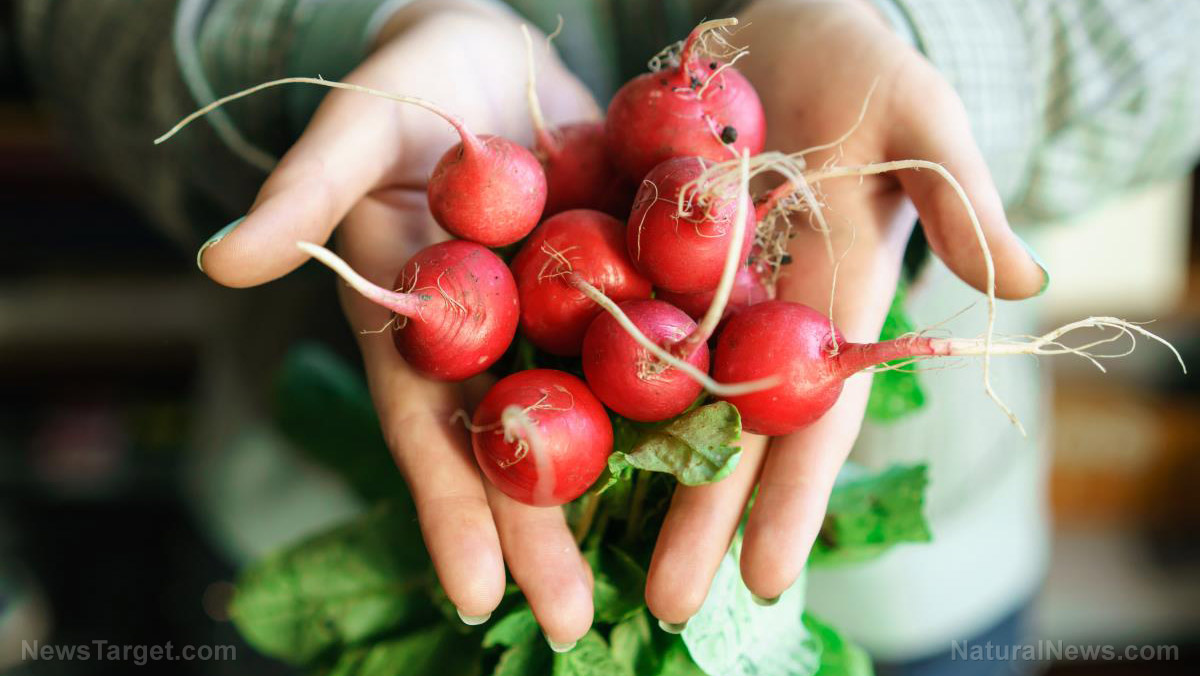 Parler
Parler Gab
Gab
What are flavonols?
Flavonols are polyphenolic compounds that belong to the flavonoid family. Flavonoids are abundantly present in fresh fruits and vegetables and are powerful antioxidant and anti-inflammatory agents. Flavonols are the most common flavonoids you can find in plant-based foods. They are described as colorless molecules that accumulate in aerial tissues, meaning they are concentrated in the skins and outer leaves of fruits and vegetables, respectively. Because plants need sunlight to produce flavonols, these phytochemicals don't occur in parts that aren't exposed to the sun (e.g., flesh and seeds). According to studies, various factors influence the amount of flavonols in foods. Some of these factors include plant type and growth, season, ripeness, food preparation and processing. Based on chemical analysis, the following foods are some of the richest sources of flavonols you can add to your diet:- Apples
- Apricots
- Beans
- Broccoli
- Cherry tomatoes
- Chives
- Kale
- Leeks
- Pear
- Onions
- Red grapes
- Sweet cherries
- Tea
Dietary flavonols and healthy brain aging
Aside from protecting your heart and blood vessels, dietary flavonols can also help reduce your risk of Alzheimer's dementia. In a recent study, researchers at the Rush Institute for Healthy Aging in Chicago looked at whether eating a flavonol-rich diet provides protective benefits against memory loss. The researchers assessed the diets of 921 individuals (mean age = 81.2 years) who are currently taking part in the Rush Memory and Aging Project (MAP), an ongoing community-based, prospective cohort study. The goal of MAP is to identify factors that could contribute to the maintenance of cognitive health despite the presence of pathological features of Alzheimer's. The researchers used a validated food frequency questionnaire to learn about the participants' diets, especially their flavonol intake. The participants also completed annual neurologic evaluations to determine if they had developed, or were at the brink of developing, Alzheimer's during the course of the study. The researchers followed them for a total of six years and took note of other factors, such as the participants' education and physical activity levels, as well as the amount of time they spent on mentally engaging activities. The researchers reported that among the 921 participants who were cognitively fit at the start of the study, 220 eventually developed Alzheimer's dementia. For the purpose of data analysis, they divided the participants into five groups based on the amount of flavonols they had in their diets. The researchers found that the group with the highest flavonol intake were 48 percent less likely to develop Alzheimer's dementia than the group with the lowest intake. At the same time, the researchers noted that participants with the highest flavonol intake also had higher levels of education and engaged more in physical and cognitive activities. Of the 186 individuals in this group, only 15 percent developed Alzheimer's dementia, while 30 percent of the 182 individuals in the lowest group had the same fate. The researchers said that even after adjusting for relevant factors, such as diabetes, high blood pressure, stroke or a previous heart attack, the risk of Alzheimer's dementia remained inversely associated with dietary flavonol intake.Which flavonols have the most impact on brain health?
There are four main flavonols in the human diet. In decreasing order of abundance, these flavonols are quercetin, kaempferol, myricetin and isorhamnetin. The study also investigated which of these four types of flavonols contributed to the decrease in Alzheimer's dementia risk. The researchers reported that participants with the high kaempferol intake were 51 percent less likely to develop Alzheimer's dementia. Meanwhile, those with high intakes of either myricetin or isorhamnetin had a 38 percent lower risk of dementia. High intake of quercetin did not affect the participants' dementia risk. Kaempferol, together with quercetin, is widely distributed in plant-based foods. The best sources of kaempferol are beans, broccoli, kale, spinach and tea. Myricetin, a well-known antibacterial and antiviral agent, can be found in kale, oranges, tea, tomatoes and wine. Isorhamnetin, a metabolite of quercetin, is present in olive oil, pears, tomato sauce and wine. Dietary flavonols are powerful compounds that you can only get from plant-based foods like fruits, vegetables and tea. To preserve your cognitive function as you age, increase your intake of dietary flavonols by adding more plant-based foods to your daily diet. Sources: ALZ.org CDC.gov EurekaAlert.org Healthline.com Tuscany-Diet.net Nutrition.UCDavis.edu [PDF] Academic.OUP.com FrontiersIn.org StanfordHealthCare.org Nature.com MDPI.com NCBI.NLM.NIH.gov N.Neurology.orgCommon signs and symptoms of magnesium deficiency
By Olivia Cook // Share
Food supply 101: How to grow edible mushrooms in your home garden
By Zoey Sky // Share
Qatari study finds natural immunity is 97% EFFECTIVE against severe COVID even after 14 months
By Ramon Tomey // Share
Polyphenols in acai found to have a prebiotic effect that boosts digestive health
By Zoey Sky // Share
Home gardening tips: How to grow and harvest radishes
By Zoey Sky // Share
Black cumin seed oil can help reduce disease-causing inflammation
By Zoey Sky // Share
Governments continue to obscure COVID-19 vaccine data amid rising concerns over excess deaths
By patricklewis // Share
Tech giant Microsoft backs EXTINCTION with its support of carbon capture programs
By ramontomeydw // Share
Germany to resume arms exports to Israel despite repeated ceasefire violations
By isabelle // Share










